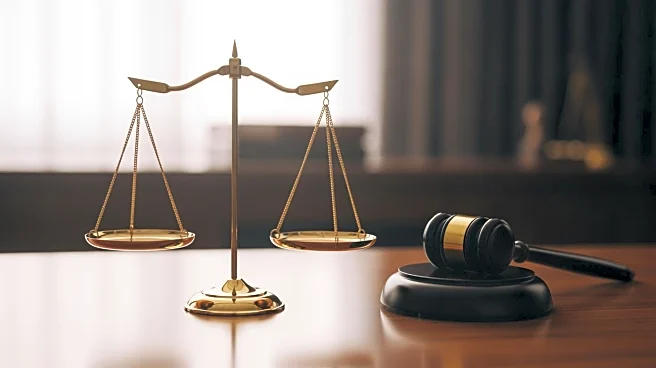What's Happening?
A federal court hearing in Chicago is addressing the controversial use-of-force tactics employed by immigration agents under the Trump administration. The hearing, presided over by U.S. District Judge
Sara Ellis, is considering whether to impose long-term restrictions on the use of tear gas and other chemical agents on crowds, as well as enhanced protections for protesters and media. The case, brought by the Chicago Headline Club and other media groups, alleges systematic violations of constitutional rights by immigration officials during ongoing enforcement actions. Evidence presented includes sworn deposition testimony from Border Patrol Cmdr. Gregory Bovino, body-worn camera footage, and claims by Homeland Security Secretary Kristi Noem that force was necessary to quell violent rioters.
Why It's Important?
The outcome of this hearing could have significant implications for immigration enforcement practices and civil liberties in the U.S. If the court decides to impose restrictions, it may set a precedent for how immigration agents can engage with protesters and media during enforcement actions. This case highlights the tension between national security measures and the protection of constitutional rights, particularly freedom of speech and assembly. The decision could impact how immigration policies are enforced across the country, potentially leading to changes in how agents are trained and how they interact with the public during operations.
What's Next?
Judge Ellis must decide whether to grant the requested injunction, which would extend protections for protesters and media against the use of force by immigration agents. The temporary restraining order currently in place expires soon, necessitating a swift decision. The hearing will continue with testimonies from witnesses, including clergy and local officials, who have observed the enforcement actions firsthand. The court's decision could influence future legal challenges to immigration enforcement tactics and shape public policy regarding the balance between security and civil rights.
Beyond the Headlines
This case raises broader questions about the militarization of immigration enforcement and its impact on communities. The testimonies and evidence presented suggest a potential erosion of trust between law enforcement and the public, particularly in immigrant communities. The legal proceedings may also prompt discussions about the ethical implications of using military-style tactics in civilian settings and the long-term effects on societal perceptions of law enforcement.









